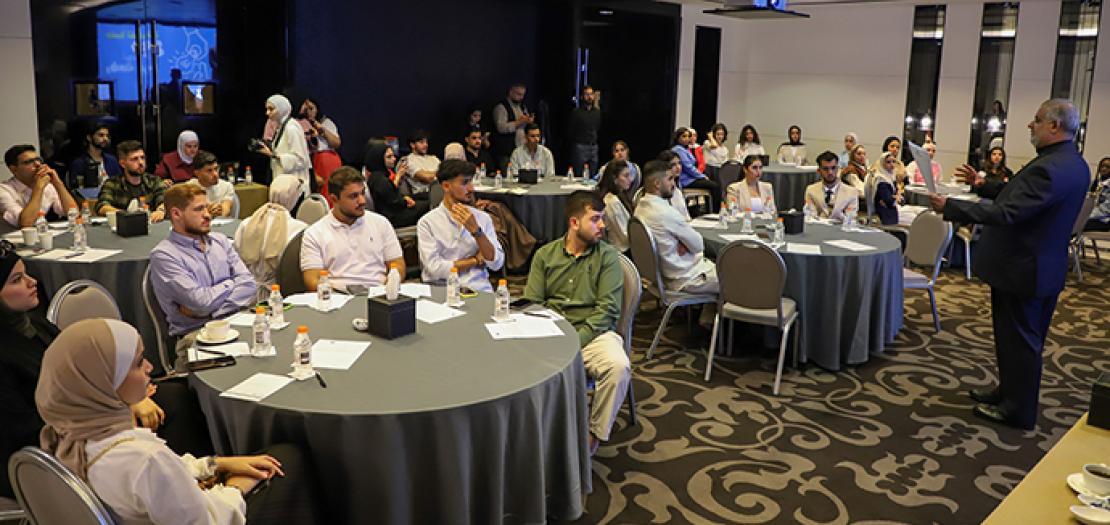Issued by the Catholic Center for Studies and Media - Jordan. Editor-in-chief Fr. Rif'at Bader - موقع أبونا abouna.org
“Towards media without hate”
This was the title chosen by the promising Jordanian youths for their beautiful and outstanding initiative, launched a few months ago, which began to rise to the surface in our noble Jordanian society. This initiative brings together a number of Jordanian university students, particularly those studying media or relevant disciplines, such as artificial intelligence and others. Its basic goal, as the title suggests, is to disseminate the "culture" of media when it is free of hate.
A few days ago, I was delighted to accept the invitation along with Dr. Laila Jarrar, associate professor at the Middle East University, to address our dear youths about religious media and its role in curtailing hate speech, which undoubtedly prevails in all societies. It behooves us to strive to eradicate it, or at least to mitigate it, as well as to minimize its negative impact on our society. Hate speech is mainly directed against an individual or a group of people, aimed at harming them, and inflicting damage on their reputation and their families. It is occasionally associated with spreading rumors, bullying, or even the proliferation of different forms of false and fabricated information.
What drew my attention in this meeting was the profound awareness I sensed by some of our youths which was evident in the discussions marked by liveliness. The attendees were divided into groups, with every group focusing on a specific aspect of hate speech, such as the speech directed against refugees or followers of different religions. I listened carefully to the ideas our youths expressed, their views, aspirations, and hopes, and realized that they are a generation that augurs wellness, especially among students of media in our Jordanian society.
The question that was raised, “Are we immune to hate speech?” Definitely not for so long that social media is available to everyone, the risk of misuse and abuse will always emerge. From this premise, dual views emerged. The first one focused on technical training. I underlined in this regard a fact that we always reiterate, namely technological progress must keep pace with moral progress. However, reality often proves otherwise as we witness unlimited technological development, especially with regards to media tools which are available to everyone, and AI which is sometimes used to debase human dignity and even to be deployed in wars and assassinations, as is the case nowadays in Gaza.
The second view focused on supporting the initiatives that contribute to curtailing this phenomenon, particularly with the assistance of university professors and students specializing in field of media. In this context, I referred to the "Media Code of Ethics" which was concluded six years ago at the initiative of the Catholic Center for Studies and Media. This charter stipulates that journalists, both male and female, must adhere to clear ethical standards, foremost among which is respect for human beings and their families, as well as respect for their religious beliefs and sentiments.
I had a positive impression about these promising youths, and I believe we are about to have a generation of media professionals, both male and female in our beloved homeland, who will keep in mind the fundamental idea presented in this session, namely respecting human dignity and preserving national unity, in its capacity as humanity's most precious asset. I was delighted to read the word "nibras," which means a "shining lamp," being the slogan for the youth initiative for media without hate whose acronyms reflect: change, understanding, the spirit of responsibility, originality, and sublime expressing.
We praise such youths.







